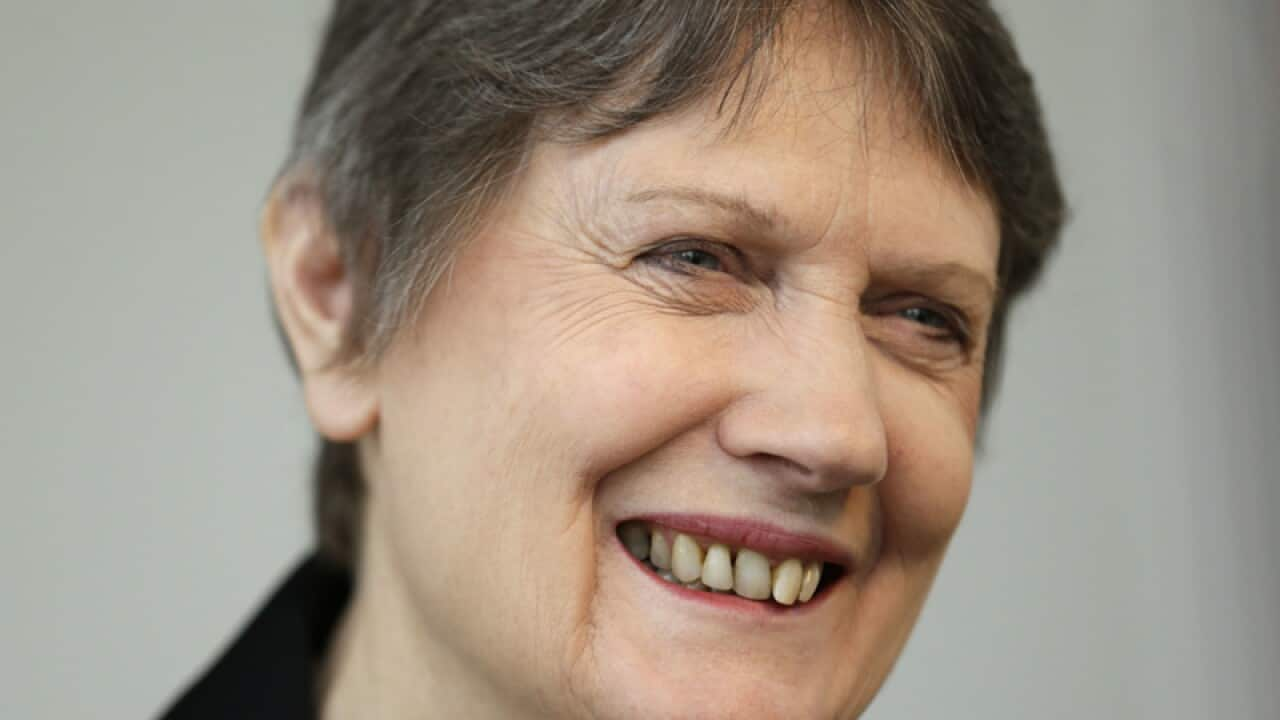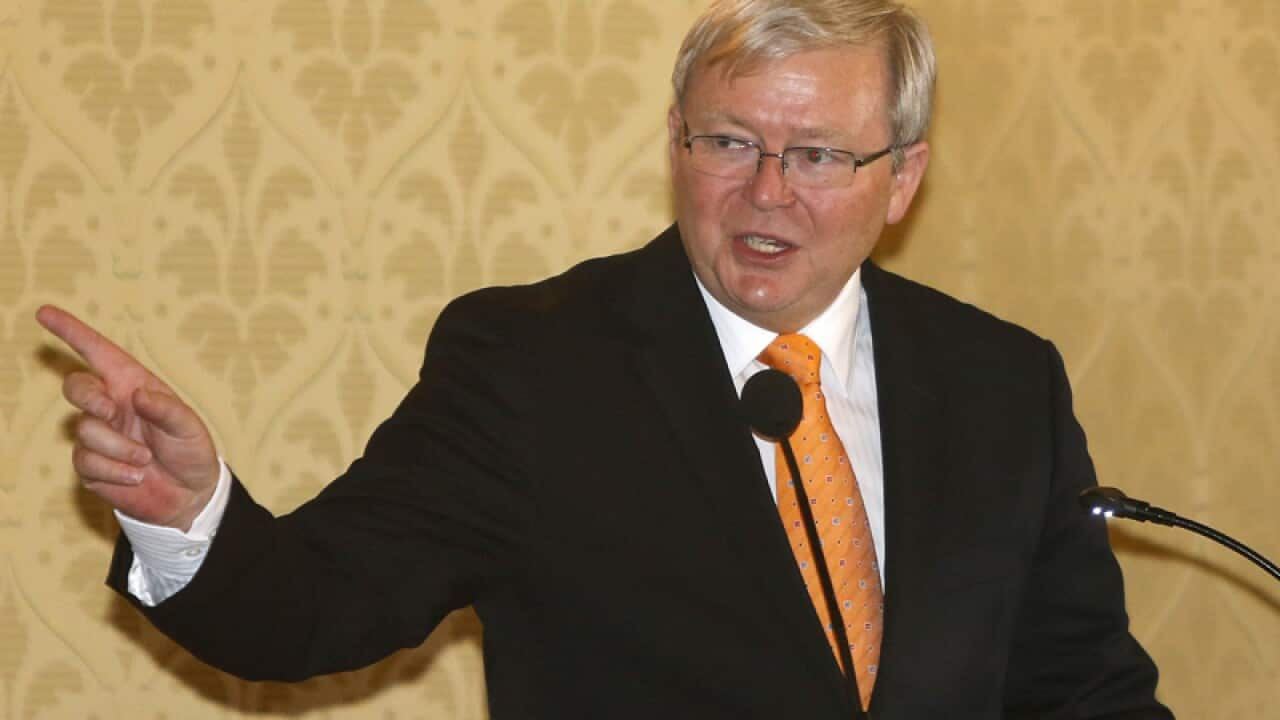Former New Zealand prime minister Helen Clark is one of four women who have been nominated for the United Nations' secretary-general role, but commentator Eva Cox says their gender should not be part of the conversation.
Professor Cox, who is an Adjunct Professor at the University of Technology, Sydney, told SBS it was "encouraging" to see the number of female candidates in line for the UN's top job.
However, she said the gender of candidates like Ms Clark should not be the main focus.
"I think it’s interesting we’re talking primarily about [Ms Clark] as a woman," Professor Cox said.
"I think Helen Clark, regardless of her gender, would make an excellent secretary-general because she is a highly skilled person and that’s the point we really need to get to and not make it so exceptional just because she happens to be the first female applying for the job."
Related reading

Ex-NZ PM Clark enters race for top UN post
She said despite the number of women in line to be the next secretary-general, there were still many people who found it difficult to see powerful women as the equal of powerful men.
"There’s still a deep level of suspicion and discomfort with the idea of powerful women," she said.
"We still tend to be described in male terms and therefore we’re often seen as a threat rather than an advantage.
"It’s important having the best candidates, and you can’t have the best candidates unless you have women available to be selected."
University of Sydney law Professor Tim Stephens told SBS, "one gets the impression that there is a feeling that the moment is ripe for the first female secretary-general of the United Nations".
"We’ve had eight secretaries-general in the 70 years of the UN and I think the feeling is now that is it is well and truly time and there are such strong female candidates to choose from," he said.
"UN positions are very tough battles in terms of how they’re fought by different countries, and there’s all kinds of deal-making behind closed doors that we don’t see, so I wouldn’t want to make a punt as to who might win.
"But I’m certainly sure Helen Clark has a good chance, in part because she has served with such distinction as the head of the UN development program for the last seven years and has consolidated a reputation as a tough and effective leader within the UN system."
UN secretary-general election now globally transparent
Professor Stephens said this was the first year the nomination of a new secretary-general had emerged from behind a veil of secrecy.
"Previously the appointment of a secretary-general has been a mostly closed door affair with the permanent five members of the UN Security Council deciding between themselves who to recommend to the General Assembly," he said.
"But this time the President of the General Assembly has established an open process allowing governments to nominate individuals for consideration for appointment as secretary-general."
Professor Stephens said nominated candidates, like Ms Clark, would now go through a campaign process in their run for the top role.
"They get an opportunity to present a case as to why they should be secretary-general, they’re required to write a 2,000 word essay and answers questions from the UN," he said.
Related reading

Rudd wishes Clark well in UN race
"They’re even participating in community, public hall-type meetings. So it’s quite a new and revolutionary process and it’s really to be welcomed in terms of opening up the UN to public, global participation."
He said under informal arrangements within the UN, it was supposed to be the Eastern European country block's turn to have the next secretary-general, but the uncertain political situation in the region had opened up the race.
"There’s certainly a possibility we will get a western Europe and others group candidate up for the secretary-general and it could be that we’ll have the first female secretary-general of the UN because... more than half the candidates nominated to date are women," Professor Stephens said.
He said former Labor prime minister Kevin Rudd had yet to be nominated for the role.
"At the moment he’s really an unofficial candidate and really it depends on the Turnbull government and on Foreign Minister Julie Bishop to decide whether or not to nominate Mr Rudd - and that’s certainly a possibility," Professor Stephens said.
"But until such time as he is nominated, he doesn’t go through the new process that the General Assembly has established."
Related reading

Bishop pours cold water on Rudd UN chances


